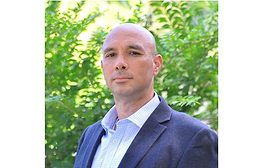Security Leadership and Management
COVID-19 Heroes
By reimagining access control and use of existing system data, Yale’s Public Safety Systems and Services team was able to centralize and organize security technology operations, while providing further value across the entire university.
Read More
COVID-19 Heroes
Georgetown University’s Office of Emergency Management supports COVID-19 response
Marc Barbiere came to Georgetown about five months before the COVID-19 pandemic, taking over the recently-restructured Office of Emergency Management (OEM) in order to coordinate the University’s efforts to prepare for, respond to, and recover from emergencies.
August 4, 2021
Sign-up to receive top management & result-driven techniques in the industry.
Join over 20,000+ industry leaders who receive our premium content.
SIGN UP TODAY!Copyright ©2024. All Rights Reserved BNP Media.
Design, CMS, Hosting & Web Development :: ePublishing











